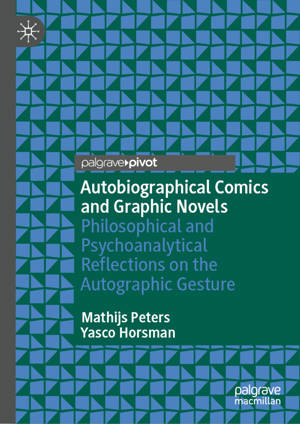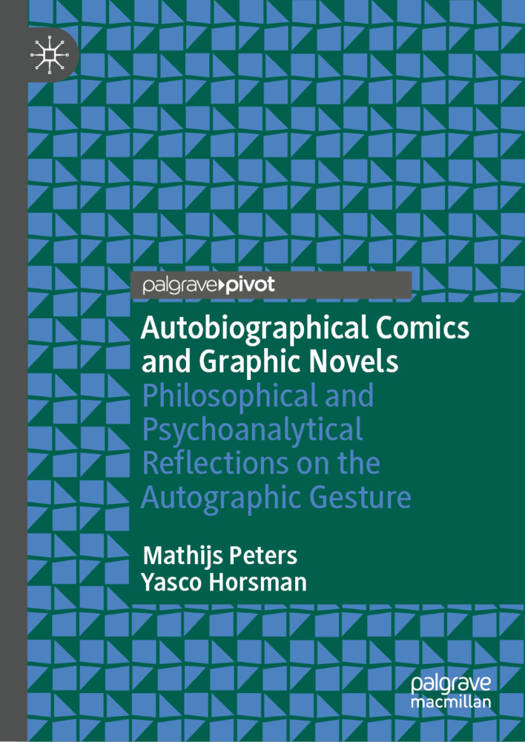
- Afhalen na 1 uur in een winkel met voorraad
- Gratis thuislevering in België vanaf € 30
- Ruim aanbod met 7 miljoen producten
- Afhalen na 1 uur in een winkel met voorraad
- Gratis thuislevering in België vanaf € 30
- Ruim aanbod met 7 miljoen producten
Zoeken
Autobiographical Comics and Graphic Novels
Philosophical and Psychoanalytical Reflections on the Autographic Gesture
Mathijs Peters, Yasco Horsman
Hardcover | Engels
€ 42,95
+ 85 punten
Omschrijving
This book offers philosophical and psychoanalytical reflections on the selfhood shaped in autobiographical graphic narratives, or autographics. These reflections revolve around the 'autographic gesture'. This gesture refers to, firstly, the leaving of graphic traces of an embodied self, which, secondly, transform into a drawn figure that represents this self and acquires a certain autonomy as a character, and which, thirdly, are embedded in a narrative that tells all or part of this self's life story. By combining the semiotic logics of trace, image, and narrative, the book argues, autographics perform this gesture and shape a specific form of selfhood. The book studies this process by turning to theories about selfhood constructed primarily within the following three intellectual traditions: existential hermeneutics, as developed by Paul Ricoeur; existential phenomenology, as embodied by Jean-Paul Sartre; and psychoanalysis, through the lenses of Jacques Lacan, Marion Milner, and Donald Winnicott. The ideas of these authors, as well as Paul de Man's and Johann Gottlieb Fichte's analyses of subject-constitution, are brought into dialogue with autobiographical graphic narratives by Zoe Thorogood, Katie Green, Peter Pontiac, Alison Bechdel, Yoshihiro Tatsumi, Marjane Satrapi, Riad Sattouf, Keiji Nakazawa, Lynda Barry, and others.
Specificaties
Betrokkenen
- Auteur(s):
- Uitgeverij:
Inhoud
- Aantal bladzijden:
- 187
- Taal:
- Engels
Eigenschappen
- Productcode (EAN):
- 9783031922565
- Verschijningsdatum:
- 31/08/2025
- Uitvoering:
- Hardcover
- Formaat:
- Genaaid
- Afmetingen:
- 158 mm x 215 mm
- Gewicht:
- 367 g

Alleen bij Standaard Boekhandel
+ 85 punten op je klantenkaart van Standaard Boekhandel
Beoordelingen
We publiceren alleen reviews die voldoen aan de voorwaarden voor reviews. Bekijk onze voorwaarden voor reviews.








